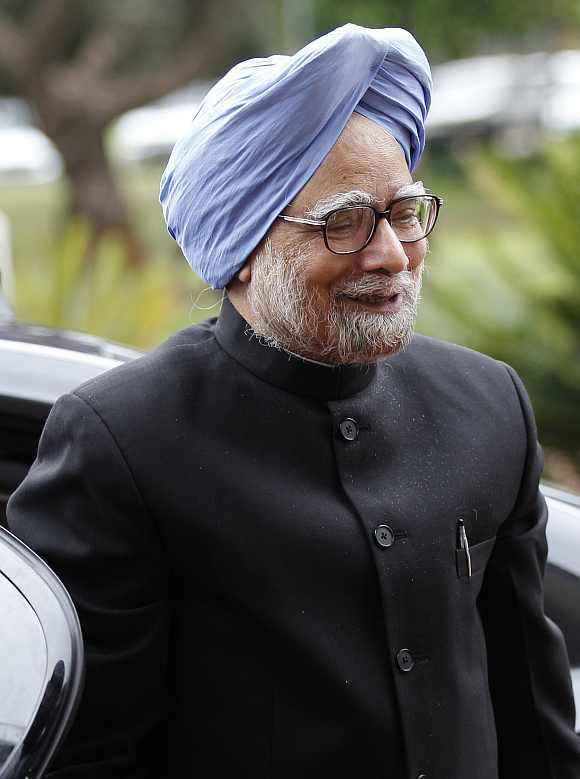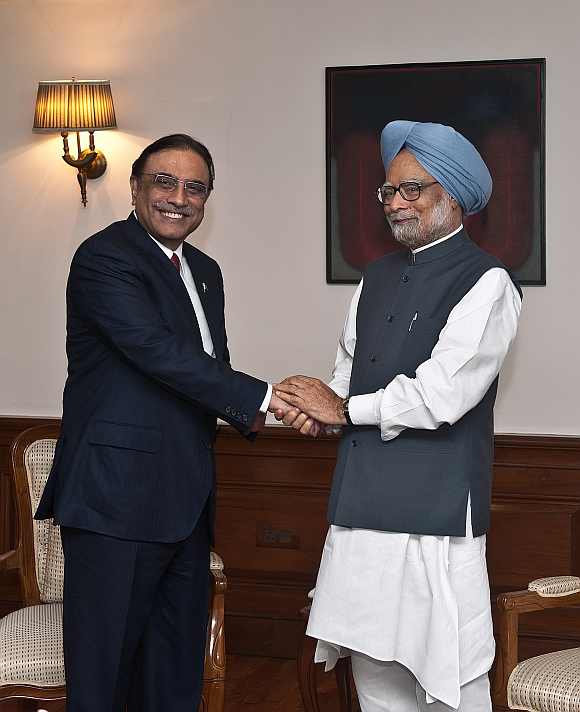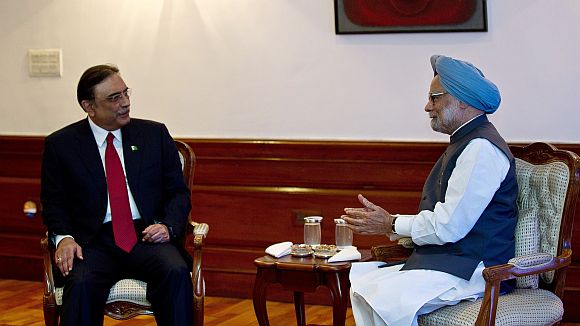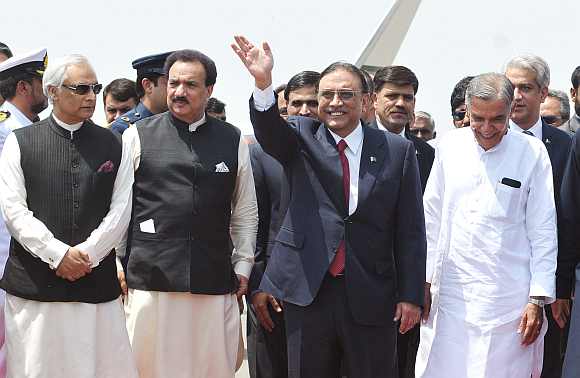
The meeting between Prime Minister Manmohan Singh and Pakistan President Asif Ali Zardari on Sunday could have positive spin-offs
The notion that Pakistan President Asif Ali Zardari's one-day visit to India was a purely personal, private trip receiving more attention than it deserved could not quite stand up to the sight of two Pakistan air force planes landing in New Delhi and disgorging Zardari and his 40-member entourage. However, this was not designed to be a headline-grabbing, summit-to-end-all-summits sort of visit.
The statement read out by Foreign Secretary Ranjan Mathai outlining what was discussed in the half-hour meeting between Prime Minister Manmohan Singh and Zardari showed, instead, that both countries' leaders are more than willing to restate positions on matters of domestic political salience -- terrorism and Kashmir -- while moving forward on other matters on which compromise appears easier.
...

The biggest of these is trade, which received the first mention in the statement. Dr Singh apparently appreciated the steps Pakistan recently took to improve its economic relationship with India -- which are, indeed, considerable.
India must now move forward with more speed than it has hitherto displayed on dismantling non-tariff barriers to trade -- particularly in the lack of infrastructure at border crossing, and the harmonisation of regulations and standards. A third major non-tariff barrier, overly rigid visa rules, has come in for some well-deserved attention recently.
The two home secretaries are due to meet soon, and it is expected that details of a significant liberalisation of the visa regime will be announced. The home ministry's statist bureaucracy must not be allowed to stand in the way of this most crucial reform.

The other issues discussed were, apparently, the state of "the neighbourhood", which is likely a euphemism for the continuing tension over Afghanistan. As the United States plans for its "endgame" there, it is important to remember that no such endgame is possible for India. It must continue its involvement with the Afghan government and people, a policy that is deeply unpopular with Pakistan's establishment.
Zardari was apparently careful to mention both Sir Creek and Siachen as outstanding issues that mattered to Pakistan, along with Kashmir. The continuing waste of lives and resources that is the decades-old standoff in Siachen was underlined most tragically on Saturday when an avalanche buried over 100 Pakistani soldiers stationed on the glacier.

Clearly, the stakes for a military de-escalation continue to be high. Yet the obstacles continue to be great as well. While Dr Singh has to cope with a weakened government, Zardari is not the final decision maker in security-related matters in Pakistan. However, India has little choice but to continue engagement with Pakistan's civilian leadership, and to strengthen its hands in whatever way possible.
Moving forward on trade and visa rules is one important way to do so. Zardari invited Dr Singh to Pakistan, as he was widely expected to, and Dr Singh has accepted. That visit should not be delayed for too long. Normality between neighbours comes from frequent contact, among other things.
The more that the benefits of no-drama, civilian-led engagement are made clear to Pakistan's people, the less ideological and political power will be wielded by that country's India-obsessed army.